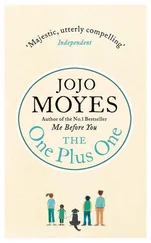“Yeah, well, you don’t see me grinning from ear to ear, do you?”
“Maybe we are up against a nut. If we are, we can just whistle. He’ll shoot whoever the hell he wants to, at random, without rhyme or reason.”
“Who’s that blonde waving at you?” Meyer said suddenly.
Carella, who thought Meyer was joking, said, “Blondes always wave at me.”
“Yeah? Even sixteen-year-old ones?”
Carella followed Meyer’s gaze to the other end of the park, where a young blonde girl wearing a navy skirt and a pale-blue sweater had begun walking quickly toward them. He recognized her immediately, and raised his own arm in greeting.
“You know her?” Meyer asked.
“Sure. Part of my fan club.”
“I keep forgetting you’re a big-shot city detective.”
“Try to remember, will you?”
Cindy Forrest was wearing her hair loose around her face. There was a trace of lipstick on her mouth, and a string of tiny pearls around her throat. She was carrying her books hugged against her breasts, carrying also a small secret smile on her face as she approached.
“Hi,” she said. “Were you looking for me?”
“No,” Carella answered, “but it’s nice to see you, anyway.”
“Why, thank you, sir,” Cindy said. “What are you doing all the way down here?”
“Looking up some records. What are you doing here?”
“I go to school here,” Cindy said. “Remember? My abnormal-psych instructor? Witness of the primal scene?”
“I remember,” Carella said. “You’re a psychology major, right?”
“Wrong. I’m an education major.”
“And you want to teach college,” he said, nodding.
“High school,” Cindy corrected.
“Some detective,” Meyer said, sighing.
“Meyer, I’d like you to meet Cynthia Forrest. Miss Forrest, this is my partner, Detective Meyer.”
“How do you do, Mr. Meyer?” Cindy said, and extended her hand.
Meyer took it, smiled, and said, “How do you do?”
She turned back to Carella almost immediately. “Did you find what you were looking for?” she asked.
“Well, we found something, but I’m not sure it helps us very much.”
“Weren’t the records complete?”
“Yes, fairly complete,” Carella said. “It’s just that…”
“Did you talk to Mr. Ferguson?”
“Who?”
“Ferguson. The football coach.”
“No, we didn’t,” Carella said, puzzled.
“He might have been able to help you. He’s been at the school for ages. The team never wins, but they keep rehiring Ferguson because he’s such a nice old man.”
“I see,” Carella said.
“You might look him up.”
“Why, Cindy?”
“Well, didn’t you come down to…?” She stared up into his face. “I’m sorry, maybe I’m confused.”
“Maybe we’re all a little confused,” Meyer said, his eyes suddenly narrowing. “Why do you think we should have looked up the football coach, Miss Forrest?”
“Well, only because he was on the team, you see.”
“ Who was on the team?” Carella said.
“Why, Daddy.” She paused, her blue eyes wide. “Didn’t you know he went to school here?”
Salvatore Palumbo was fifty-seven years old, a wiry little man who had been born in Naples and who’d come to America in 1938 because he didn’t like Mussolini or what he was doing with the country. He did not speak a word of English when he arrived, and he had only $40 in American money, plus a wife and two children, and the address of a cousin. He went to see the cousin in Philadelphia, and the cousin made a great show of welcoming him and then promptly let it be known he wasn’t really welcome at all. So Palumbo, still not speaking a word of English—this was only a week after he’d arrived—spent twenty of his American dollars for train tickets and took his family to another city, and tried to make a start.
It was not easy to make a start. In Naples, he had been a fruit vendor with a small pushcart. He used to buy his produce from the farmers who drifted into the city from the outlying districts, and he used to shove his pushcart all over the city, sometimes not getting home until 9:00 or 10:00 at night, but nonetheless providing a living for himself and his family. The living was poor, even by Italian standards; in Naples, Salvatore Palumbo and his wife had lived in a slum. In America, he moved from Philadelphia, where his cousin lived in a slum, directly to another city and another slum.
He did not like the slum. In Italian, he said to his wife, “I did not come to America to live in yet another slum,” and then he set about trying to find work. He thought it might be a good idea to get himself another pushcart, but he didn’t speak English at all, and he didn’t know where to buy his produce, or how to go about getting a vendor’s license, or even that a vendor’s license was necessary. He got a job on the waterfront instead. He was always a small man, and lifting bales and crates was difficult for him. He developed a powerful chest and muscular arms, so that he looked like a bandy-legged little wrestler after two years of working the docks.
Well, America is the land of opportunity. That’s the God’s honest truth, you can take it or leave it. You don’t have to stay in a slum, and you don’t have to keep working on the docks. If you have the will, determination, and ambition of a man like Salvatore Palumbo, you can in twenty-five years own a little house in Riverhead—in an Italian neighborhood, yes, but not in a slum or a ghetto—and you can have your own fruit-and-vegetable store seven blocks away on Dover Plains Avenue, and people will call you Sal instead of Salvatore.
At 12:00 noon on May 1, Detectives Meyer and Carella were in another part of the city making a series of startling discoveries while Sal Palumbo stood on the sidewalk outside his store and polished his fruit. They discovered first of all that Anthony Forrest was a graduate of Ramsey University, a fact they had never known. And then, carried on the wave of this fresh discovery, they remembered that Mae Norden, the wife of the slain lawyer Randolph Norden, had told them her husband had studied at Ramsey Law. Like men who had found the elusive piece of a very tiring jigsaw puzzle when the piece was right there on the table all along, just under the ashtray, they exuberantly tied the first two deaths with the death of the prostitute Blanche Lettiger, who had also been a student at Ramsey, and foolishly and joyously believed the puzzle was almost finished when in actuality it had only just begun.
Sal Palumbo had no such feelings of soaring joy as he polished the fruit. He liked fruit, indeed he loved fruit, but he did not polish it because it gave him any particular pleasure. He was not the kind of person who could go wild over the color of an apple or a pear. He polished the fruit because when it was polished it looked better to his customers, and when it looked better to his customers, they bought it. One of his customers was walking toward the store now, an Irish lady named Mrs. O’Grady. He did not know the Irish lady’s first name. He knew that she lived someplace in Riverhead, but not in the immediate neighborhood. Palumbo’s stand was on Dover Plains Avenue, just below the elevated structure, near the corner of 200th Street. There was a station stop on that corner, and every Tuesday afternoon at about this time, Mrs. O’Grady would come down the steps leading from the station and stop first in the candy store on the corner, and then next in the butcher’s shop alongside it, and then she would walk to Palumbo’s store, which was two stores down from the butcher’s shop in the shadow of the station platform.
“Ah, signora ,” Palumbo said, as she approached, and she promptly answered, “Don’t give me the Eye-talian malarkey, Sal.”
Читать дальше












